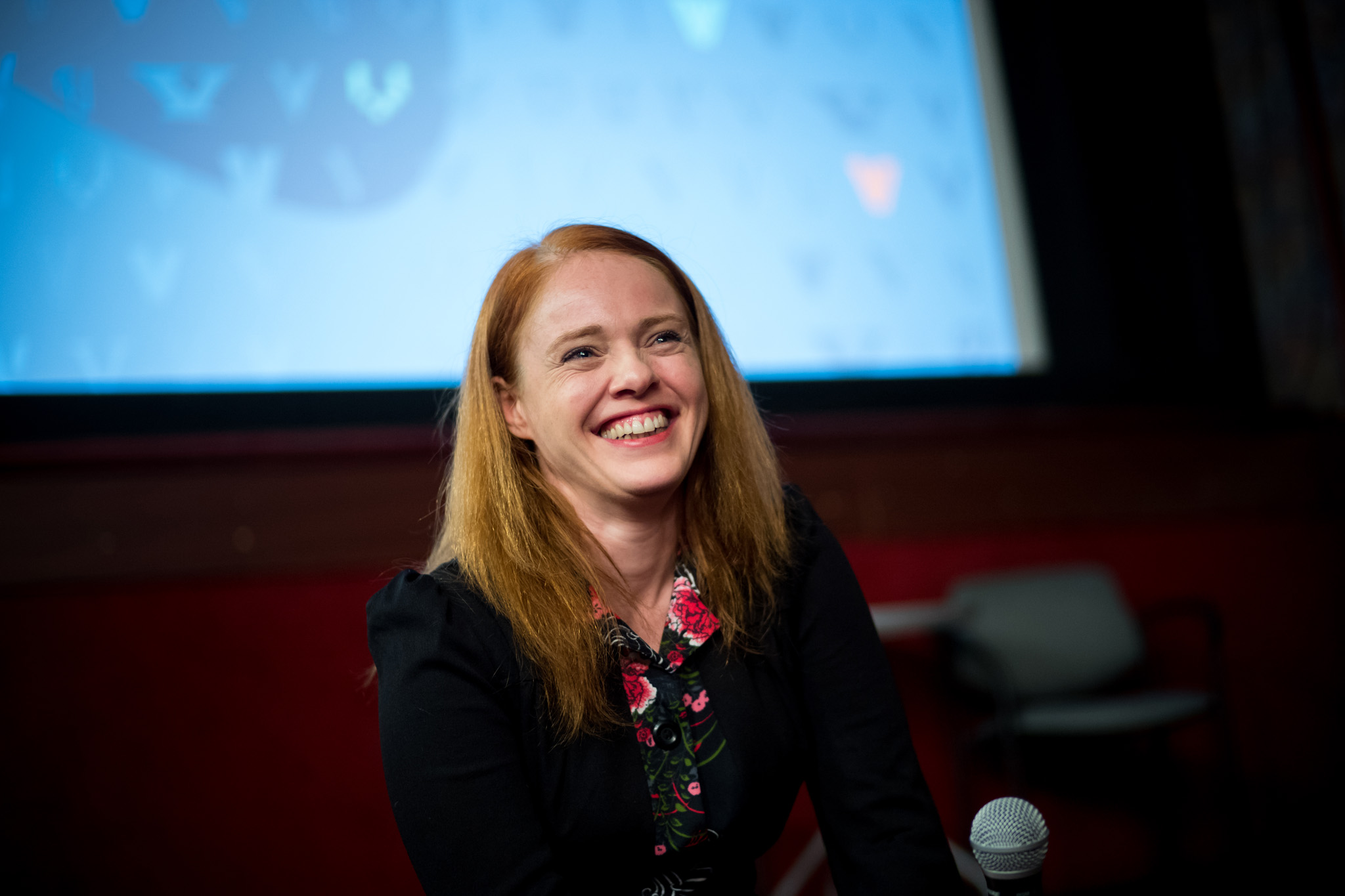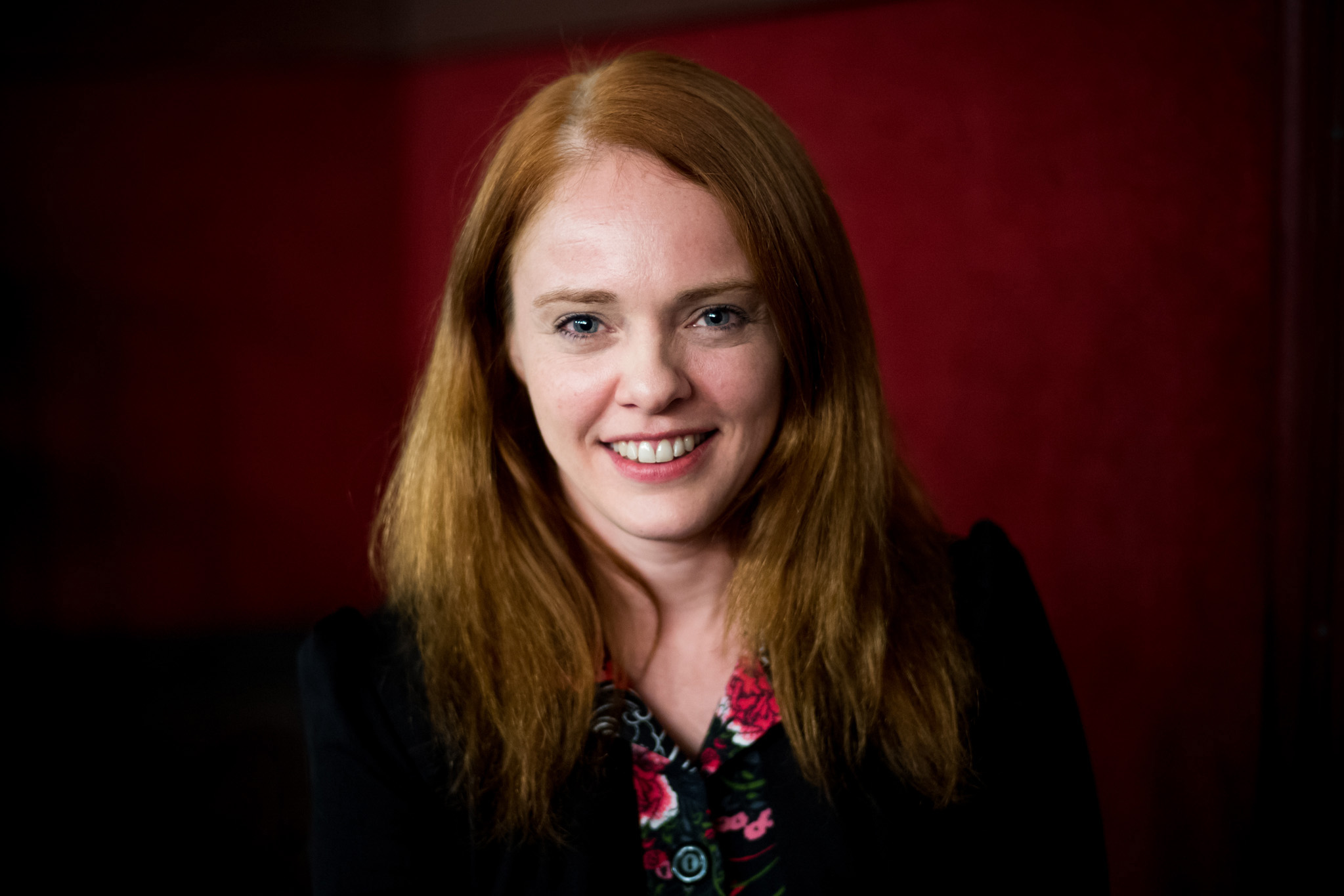
The documentary Forever Pure is about Beitar Jerusalem, a football team particularly famous for having a predominantly anti-Muslim, anti-Arab fan base. This team has never seen an Arab or a Muslim among its players. “Being a Beitar Fan, especially being part of La Familia, an extremist supporters’ group of Beitar Jerusalem, says a lot about you as a person, as a member of society”, says Maya Zinshtein, director who was a guest this year at Verzio Documentary Film Festival. “It tells others about your social position, your identity, and of course, your political views.”

fotó: Ivándi-Szabó Balázs
Zinshtein got in touch with Beitar Jerusalem as a journalist, she didn't choose her characters, they arrived to Israel by plane from Chechnya and they guided her through the story. She was in fact sent to the football club to capture the behind the scenes of the arrival of the very first two Muslim players that Beitar had ever had, Dzhabrail Kadiyev and Sadayev Zaur. The story had potential and fascinated her, so when she finished the piece for her TV channel, she decided to continue following these events as a documentary filmmaker.
It is easy to imagine how, having such a fan base and in this politically delicate environment, the arrival of two Muslim Chechens could add fuel to the fire. “The fans felt that the club wanted to change their identity, an identity built through the years”, goes on Zinshtein. Although she doesn't necessarily share the opinions of those she films, she told us that it is important to create a connection with them. “You are telling their story, hence a non-judgmental attitude is necessary for them to trust you, to open up to you. To be unbiased though, as a filmmaker you also have to be ready to open your heart to different people and points of view. Being a foreigner [she was born in Russia, although she is Israeli] helped me to get a privileged position”, she says.
She was indeed able to gain a lot of access, she filmed the members of La Familia and she was also able to interview Arcadi Gaydamak who at the time of this “war” owned the club. At first she couldn’t understand why Sadayev and Kadiyev are reluctant to talk to her. “I thought they hated me, maybe because for them I represented Israel”. As she understood with time, the reason of their silence lied elsewhere: they tried to protect themselves. “Men many times stay silent during tough situations,” she concludes, “you need to see what people are willing to give you, without pushing them too much.”

The conflict with the Muslim players exploded. Seemingly nobody wanted these players, they themselves missed home, they were treated with despise by La Familia and with distance by the majority of the other players. The conflict between fans and the leadership of the team was out of control, so at the end of the season the two players were sent home. “The moment when La Familia left the stadium after Sadayev scored, I understood I wouldn't have had a happy ending for my film. Sadayev himself realized that there was nothing he could have done as a football player to change the situation, to please them”.
“When I was filming I had to choose a side, I chose the club over the fans because I had more access there”. After the other side, the fans, threatened her multiple times she decided to face them. She told them she was open to listen, to get their angle of the story, but they refused. Still, the meeting with them, she says, “was important to add something to the final cut, a final taste that was missing.” This is a testimony on her professionalism, to be a good filmmaker she makes thoughtful choices by not erasing others’ perspectives.

fotó: Ivándi-Szabó Balázs
Forever Pure is a film of our times: “a small group taking over the majority is a story we hear a lot about these days. It is a movie that exposes how racism can destroy a society from within, at the same time working as a ‘shock therapy’ to push people to change things,” says Zinshtein with a smile. The documentary opened the mind of many people already, it has been shown in schools, there are debates about the topic. It is the first movie not about holocaust to win a honourable mention at the Yad Vashem Chairman’s Award for “documenting the destructive powers of hatred and incitement, as they threaten Jewish and democratic values in contemporary Israel." As Zinshtein repeats, “this film is not against Israel, it is against racism and violence. “The essence of sport was lost but still something can be learnt for the future,” concludes with an incurable optimism we would all like to share with her.
Eletta Repetto